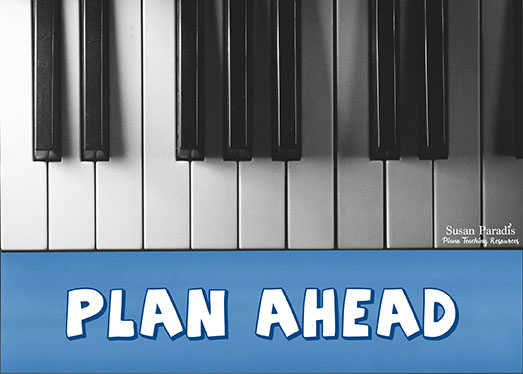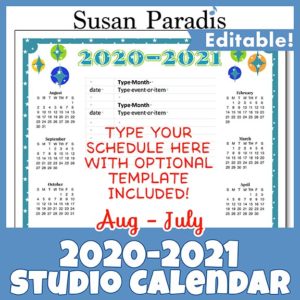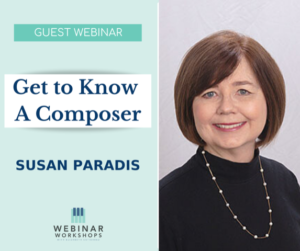Plan Ahead for Easier Piano Lesson Scheduling
When it comes to the business part of teaching piano, scheduling is probably one of the most troublesome tasks. Emma can only come on Wednesdays because she has gourmet cooking class on Monday, lacrosse on Tuesday, flower arranging on Thursday, and whiz kids on Friday. And it’s not only Emma, it is almost everyone in the studio. It can take a lot of time to write a schedule that makes everyone happy.
Over the years, I found some solutions to this troublesome scheduling problem and I’m going to share them with you. Many teachers have found that planning ahead will give us some free time to do something more fun than scheduling. Here is how it works.
Keep the same day every year.
Asking every parent “what day and time do you want this year” should not be on the radar. Instead, give families a time slot to keep as long as they want it.
I know what you’re thinking: “I can’t do that. Parents don’t know what day kickball practice or flugelhorn lessons are going to be!”
But it is possible for parents to always remember that their lesson time is at 3:30 on Wednesday and to plan accordingly. I’ve been to many parent meetings for activities, and often there are several parents who can’t come on a certain day, so the coach/instructor looks for another day. Why not let piano be the day that other activities have to work around rather than the piano teacher being the one who always has to work around everything else?
Start your schedule prep early
Send a studio letter to every parent by March 15, for example. The letter should include a registration form to be returned with the following information:
• The registration form and fee are due April 30.
• They will keep their day and time for fall semester unless they let you know otherwise.
• They should inform you by that date if they need to change their day or time.
• Parents who sign up after the deadline will pay a higher fee and you cannot guarantee their time slot.
• Parents should list three possible lesson times in order of preference in case they need to change now or in the future.
• The letter should include the fall semester tuition, any changes to your studio policy, and other pertinent studio information.
This studio letter needs to be transparent so parents can make informed decisions. If you plan on raising tuition, have it all worked out before you send this letter. To minimize problems, any changes in your studio policy should be stated clearly in your letter. You will lose parent loyalty if you surprise parents with tuition increases or other changes at the last minute.
Students who discontinue lessons
At this point, some parents already know their child is not going to return to lessons. They just haven’t told you yet. Requiring an early decision and registration fee will encourage them to let you know so you can plan your schedule early. You can use empty slots for students who request a new time and you will not turn down students only to learn later you have an open slot.
Parents who don’t reply
What about parents who don’t reply by the April 30 deadline? It will be your job to notify them in person by their preferred communication as the deadline approaches. You need to remind them that they will pay a larger deposit if they miss the deadline and they also risk losing their time slot. Remember the best communication is in person or over the phone.
After you have the fees and forms
Don’t put off this final step. After the deadline and you’ve heard from everyone, it is time to make your schedule. You don’t have to start all over. You only have to move a few students into the vacant slots. Since they gave you 3 choices, it’s not too hard. Communicate with parents if there is a stubborn problem. As a last resort, you might find it necessary to ask parents if they are willing to move out of their guaranteed slot. Make sure they are 100% on board. They might be willing to move just during band season, for example, if you promise they will get the slot back. Other times they might be happy with the move.
Your goal is to have your schedule completely finished by May 15. Give it to parents as soon as possible.
What always happens when school starts
Usually you will have a parent call up frantically saying Emma made the elite, youth juggling team that only meets after school on Wednesday. But she loves piano and she doesn’t want to quit. Don’t panic because these problems always work out. Just be happy you don’t have to do it for every single student in your studio!
I know as teachers we worry about the over-committed children, the ones who do too much. In fact, piano is one of the things that many of these children want to do! As they grow older, students tend to gravitate to the activities they like the best and drop the others. If we can keep them in piano, sometimes they become our best students. On the other hand, high school teachers and coaches don’t have the same flexibility you find for younger children. That is when scheduling has to get very creative! 7:30 am lessons, anyone?




